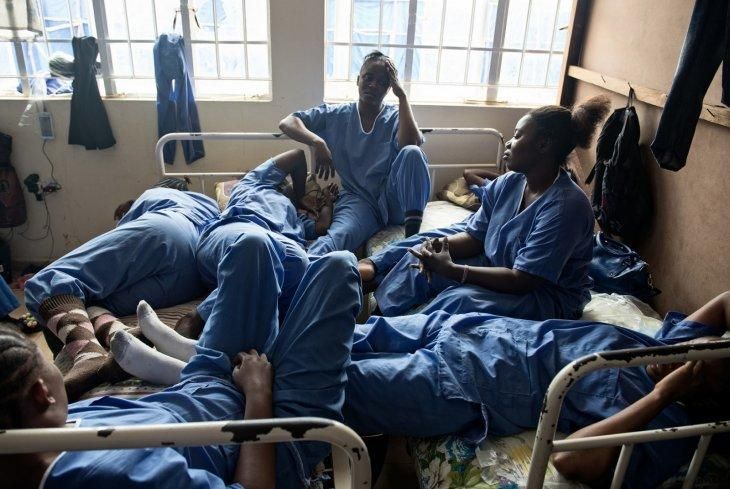WHERE THE EBOLA MONEY WENT
The U.S. and other wealthy countries may feel good about contributing billions of dollars for the fight against Ebola in Sierra Leone and other poor West African countries, but as Pulitzer Center grantee Amy Maxmen documents in this deeply reported investigative story for Newsweek, only a small percentage of the money went to the nurses, ambulance drivers, burial workers and others who came in direct contact with Ebola victims. Many of the workers who risked their lives were simply ripped off.
“Hundreds, if not thousands, of nurses and other frontline staff fighting Ebola have been underpaid throughout the outbreak – and many remain so today,” writes Amy. “Instead, the vast majority of money, donated from the taxpayers of the UK, the US and two-dozen other countries, went directly to Western agencies, more than 100 non-governmental organisations (NGOs), and to the UN.” In fact, less than 2 percent of the $3.3 billion in donations went to the frontline workers.
Amy’s reporting exposes serious flaws in the way emergency aid is delivered in developing countries. “Infectious disease scientists guarantee this will not be the last outbreak in our lifetimes,” she says. “To prepare for the next one, Bill Gates, the UN, and the WHO have released recommendations. Their advice includes equipment, isolation units, affordable healthcare, workshops for nurses, surveillance systems, technological solutions, and pharmaceutical products. But none that I've found mention pay for nurses in fragile health systems.”
WASTE NOT WANT NOT
The United Nations estimates that a third of the food produced worldwide ends up spoiled, rotting in fields, or being thrown away. “That amounts to 1.3 billion tons of food wasted annually, a profligacy that carries major environmental, economic, and human costs,” according to Pulitzer Center grantee Karim Chrobog.
In a two-part documentary for Yale Environment 360, Karim compares the U.S., the worst offender—where each year a startling 133 billion pounds of food is wasted—with South Korea, a wealthy country that has known hunger and that has adopted innovative programs to cut household food waste and minimize the amount of food that ends up going to landfills.
The amount of food thrown out in the U.S. each day is more than enough to feed the 800 million around the world who will go to bed hungry. The abundance that Americans take for granted has given rise to a culture of careless waste. As one expert told Karim, “I think if you really dig down to what’s going on here, it’s that people don’t value their food.”
INJUSTICE EXPOSED
When Pulitzer Center grantee Daniella Zalcman set out to document the adverse effects of Canada’s century-plus policy of forced assimilation for native populations, she was sensitive to concerns that “images depicting drug use, alcoholism and poverty...can do more to shame and stigmatize the subjects than shed light on the sources of their suffering.”
She came up with a novel approach for Mashable—a series of multiple-exposure portraits that pairs images of the subjects with overlays showing sites where residential schools once stood or text from government documents intended to enforce assimilation. “Each double exposure contains an echo of trauma,” Daniella writes, “which lingers even during the healing process, as languages and traditions return.”
Until next week,
Tom Hundley
Senior Editor
